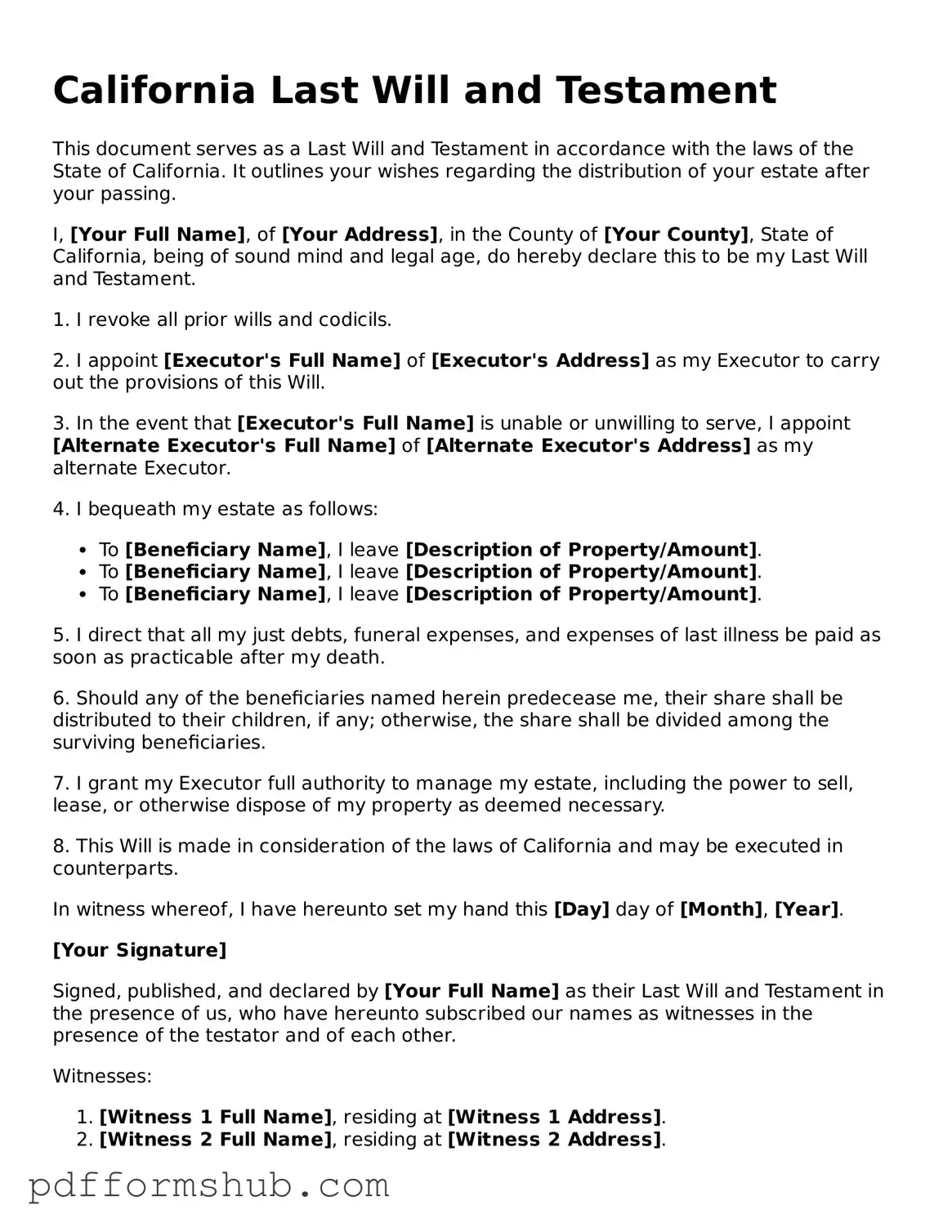Attorney-Verified Last Will and Testament Form for California State
A California Last Will and Testament form is a legal document that outlines an individual's wishes regarding the distribution of their assets after their passing. This form serves to ensure that your estate is handled according to your preferences, providing clarity and guidance for your loved ones. To begin the process of securing your legacy, consider filling out the form by clicking the button below.
Customize Form

Attorney-Verified Last Will and Testament Form for California State
Customize Form

Customize Form
or
Free PDF Form
Short deadline? Complete this form now
Complete Last Will and Testament online without printing hassles.